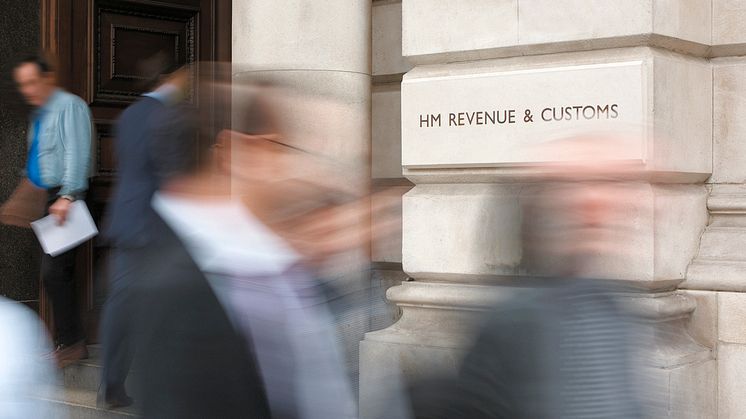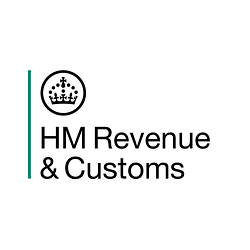
Press release -
Springtime tax scams target young and vulnerable, warns HMRC
Young adults who may have less experience of the tax system should be especially vigilant against springtime refund scams, warns HM Revenue and Customs (HMRC).
Scammers are increasingly targeting vulnerable or elderly people and those with less familiarity with the tax system, such as young adults.
During April and May, fraudsters regularly blitz taxpayers with refund scams by email or text pretending to be HMRC. Criminals do this to coincide with legitimate rebates being processed by HMRC.
They will encourage people to provide bank details, in exchange for a payment worth hundreds of pounds, on a fake government website to harvest private information and steal money. HMRC will never ask someone to provide bank details by text or email.
Last Spring alone, HMRC received around 250,000 reports of tax scams — which is nearly 2,500 a day — and requested that over 6,000 phishing websites be deactivated.
Head of Customer Services at HMRC, Angela MacDonald, said:
“We are determined to protect honest people from these fraudsters who will stop at nothing to make their phishing scams appear legitimate.
“HMRC is currently shutting down hundreds of phishing sites a month. If you receive one of these emails or texts, don’t respond and report it to HMRC so that more online criminals are stopped in their tracks.”
Head of Action Fraud, Pauline Smith, said:
“These criminals will contact victims in many ways including spoofed calls, voicemails and text messages.
“People should spot the signs of fraud and be wary of emails with attachments which might contain viruses designed to obtain personal or financial information.”
Katy Worobec of Take Five, the national campaign that advises on protection against financial fraud, said:
“The offer of a tax rebate might sound tempting, but don’t let the criminals hoodwink you into giving away your details or your cash. If you’re worried that you might have given away any of your information, then contact your bank straight away.”
When taxpayers file returns to HMRC, they will then legitimately receive a tax calculation as well as an email promoting them to check their Personal Tax Accounts. As many taxpayers file Self Assessment returns, most of HMRC’s contact happens in the months after January.
If you have paid too much tax, HMRC will issue the repayment automatically either direct into your bank account or if you have indicated on your tax return there is no bank account then HMRC will send you a cheque. If you have not paid enough tax, HMRC will tell you how much you owe and how you can pay securely.
Notes to editors
Useful statistics about Spring scams warning
- During March, April and May 2018, HMRC received nearly 250,000 reports of phishing and made over 6,000 requests to have websites shut down.
- According to Ofcom Communications Market Report 2018, 95% of 16-24-year-olds owned a smartphone last year and 51% of those aged over 55+ owned a smartphone in the same period. Smartphones are often how many members of the public receive text and email scams.
The tax authority is urging anyone who knows someone that could be vulnerable to scams to be warned and prepared. HMRC’s top tips:
Recognise the signs - genuine organisations like banks and HMRC will never contact you out of the blue to ask for your PIN, password or bank details.
HMRC will never advise you of a refund in an e-mail or SMS message.
- Stay safe - don’t give out private information, reply to text messages, download attachments or click on links in emails you weren’t expecting.
- Take action - forward suspicious emails and details of suspicious calls claiming to be from HMRC to phishing@hmrc.gov.ukand texts to 60599, if you have suffered financial loss contact Action Fraud on 0300 123 2040 or use their online fraud reporting tool.
- Check GOV.UKfor information on how to avoid and report scams and recognise genuine HMRC contact.
- If you think you have received an HMRC related phishing/bogus email or text message, you can check it against the examples shown in this guide.
HMRC’s action against scams
- HMRC works relentlessly to close down scams and make people aware of them. Last year HMRC shut down 5,000 phishing scams before they could dupe taxpayers.
- HMRC has cracked down on fraudsters using text and email to steal from taxpayers in the past two years, stopping half a billion emails in their tracks and introducing controls to reduce fake HMRC branded texts by 90%.
- In the 12 months to February 2019 we received 73,382 reports of suspicious HMRC phone calls, and asked phone carriers to remove more than 400 unique numbers associated with scams. HMRC works with a range of enforcement partners both in the UK and abroad to gather intelligence of scams and to help the police shut them down.
Topics
Issued by HM Revenue & Customs Press Office
HM Revenue & Customs (HMRC) is the UK’s tax authority.
HMRC is responsible for making sure that the money is available to fund the UK’s public services and for helping families and individuals with targeted financial support.

